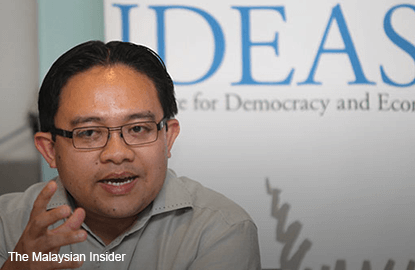
(Oct 27): The Budget 2016 does not address the "bigger picture" problems with the Malaysian economy: the crisis of confidence in Prime Minister Datuk Seri Najib Razak, says think-tank Institute for Democracy and Economic Affairs (IDEAS).
IDEAS chief executive Wan Saiful Wan Jan said consumer and investor sentiments towards Malaysia would continue to be affected as long as the crisis of confidence was not tackled.
"The real problem that we face is not fiscal in nature but is more political. The prime minister faces credibility and trust challenges. Many people just simply do not trust him any more and if not addressed it will hurt consumer and investor sentiments.
“Therefore, while the budget speech outlines efforts to control spending, it will have minimal to no impact on the issue of reputation and popularity in the long term," said Wan Saiful in a press release today.
He said resolving Malaysia's long-term problems required action "way beyond" the scope of Budget 2016, and that the trust and credibility problems surrounding Najib must be addressed.
Wan Saiful added that Malaysia should also be cautious about the handouts, tax breaks and incentives detailed in Budget 2016, given the decline in revenue from the oil and gas industry.
"I understand that the giveaways must be done especially if we bear in mind the current political situation. But I want to urge caution," he said.
Last Friday, Najib delivered a budget described by many as an effort to help the less well-off and bolster economic growth, already hit by slumping oil prices, weak ringgit and perception problems.
Najib, who is also under fire over controversies concerning state-owned 1Malaysia Development Bhd (1MDB) and a RM2.6 billion "donation" in his personal accounts, introduced measures which included increasing support for low-income families via BR1M and extra funds for affordable housing projects and development spending.
Budget 2016 involved an expenditure of RM267.2 billion compared with RM260.7 billion in 2015. – The Malaysian Insider